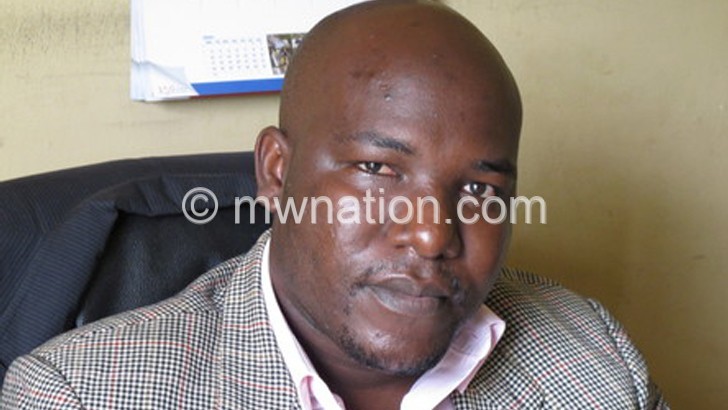Politicians have sold Malawi—Mtambo
Minister of Civic Education and National Unity Timothy Mtambo has urged politicians to desist from corrupt practices fuelling inequalities that antagonise different sections of the citizenry.
The minister was speaking in an exclusive interview held in Lilongwe where he was asked his stance on the souring relationship between citizens calling themselves indigenous Malawians and those of Asian descent.

Recently, there has been a growing backlash both within and outside Parliament against the minority Malawians of Asian origin said to have corruptly accumulated land, businesses, government contracts and power.
However, Mtambo told Weekend Nation that the growing outrage will only fan xenophobia unless the nation decisively tackles inequalities widening the economic divide.
He said: “This isn’t a new problem. We have watched it for many years and now it is manifesting itself in a bigger way. The inequalities are genuine and it’s the responsibility of the government to address the inequalities.
“Whenever there are inequalities, there is no peace. Wherever there is no justice, there is no peace. The faster we address these issues, the better.”
Mtambo called for “honest conversations because both sides are raising ‘very, very genuine issues.’
He explained: “If we don’t get to the foundation of this issue, we may think we are addressing the problem when we are just tackling the symptoms, so we need to understand why we are in this situation. Who is responsible for this and how can we address the problem.
“While you are pointing a finger at somebody, you must be aware that the other fingers are pointing at you,” he said.
The minister who has history of activism against widespread corruption, squarely pointed at politicians for selling the country to the highest bidders, leaving Malawians with little say.
He stated: “Politicians have contributed to these inequalities. If they say Malawians of Indian origin are corrupt, the question is: Do they do corruption with themselves? Don’t they do it with our politicians? So we politicians have given these people space.
“If I refuse to be corrupted, will there be corruption? No! Since we are giving them land and business opportunities in exchange for kickbacks, they are amassing wealth while indigenous citizens who cannot afford to give a bribe are suffering and being left behind.”
Mtambo urged against racism and xenophobic generalisations.
He said: “We cannot paint all people with one brush. Some of them may be rotten, but many others are good. The issue at hand is about inequality, so we have to find better ways of addressing it to avoid creating disunity and chaos in this country.
“The philosophy of this government is that people should be able to live in peace, harmony and equality.”
The minister pledged not to run away from inequalities but foster unity in diversity for a better so that Malawians from all walks of life can prosper together.
“There is a problem, but we are not going to resolve it with anger to say for us to have, then let’s take away from those who have more. You don’t empower someone by weakening those who are strong. What we need are laws and policies that promote fairness by empowering those left behind to catch up and that’s why in procurement, we are talking about empowering indigenous Malawians by ensuring that 60 percent of government contracts go to them.”
Early this month, a racist social media advertise of a house in Blantyre as ideal for a tenant of Asian descent ignited a heated in Parliament.
Mulanje Bale legislator Victor Musowa threatened to convene mass protest in Limbe if the government does not clamp down on racist and monopolistic tendencies by the Asian community another legislator accused of owning over 90 percent of the town in Blantyre.
In the interview, social commentator Rafiq Hajat said the conflict between different sections of the citizenry dates back to pre-colonial times when nationalist Henry Chipembere and John Msonthi barred ‘amwenye’ from joining the Malawi Congress Party, currently in power after 26 years in the wilderness.
In 1972, founding President Hastings Kamuzu Banda banished Indian traders from rural areas, giving them an ultimatum to behave or get expelled as was the case in Uganda during Idi Amin’s dictatorship.
He said the radical tone forced many Asians to forgo Malawi citizenship and flee to Britain.
As the sudden outbursts against the minority group keep growing Hajat says it is wrong to treat all Asians as an identical group when some arrived in Malawi before the tribes identifying themselves as indigenous Malawians.
He stated: “We need to draw a line between new arrivals and those who have been here for generations. Some of us call Malawi home and we are not asking for preferential treatment, but equality before the law.
“The new arrivals have different mentalities, different culture, different objectives, different ambitions and different modus operandi. They have different values. Strangely, the corrupt tendencies the minister is talking about have accelerated in the past 10 years or so.”
Hajat urged the government to launch forensic inquiries into suspected crimes committed by all Malawians, even those of Indian origins, so justice can take its course because no one is above the law.





